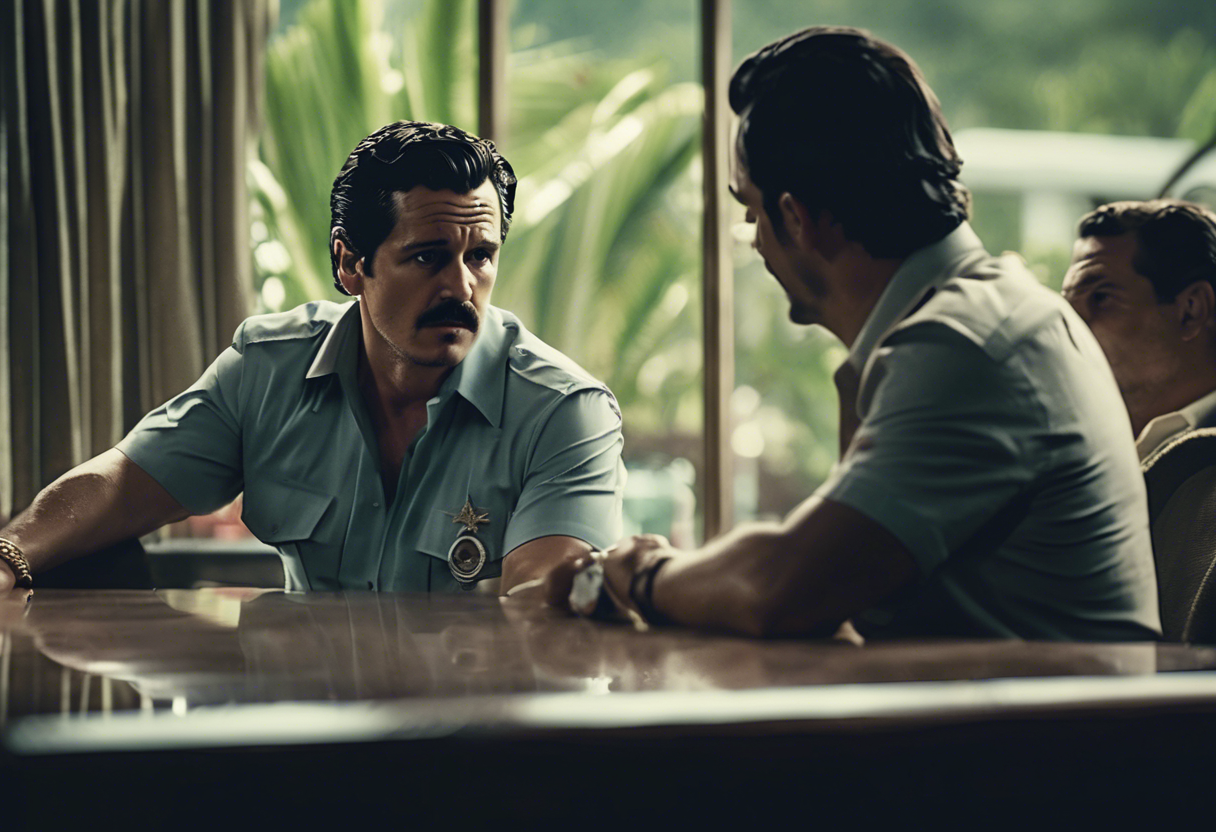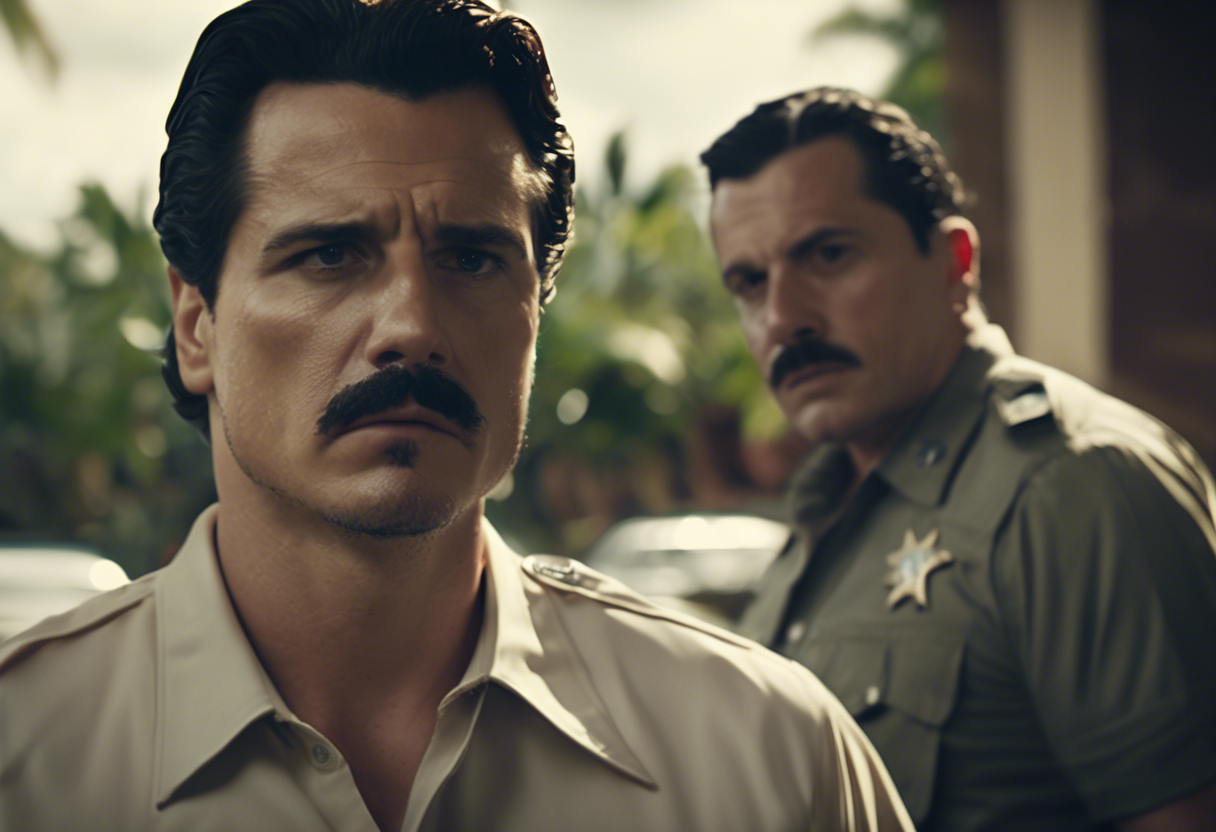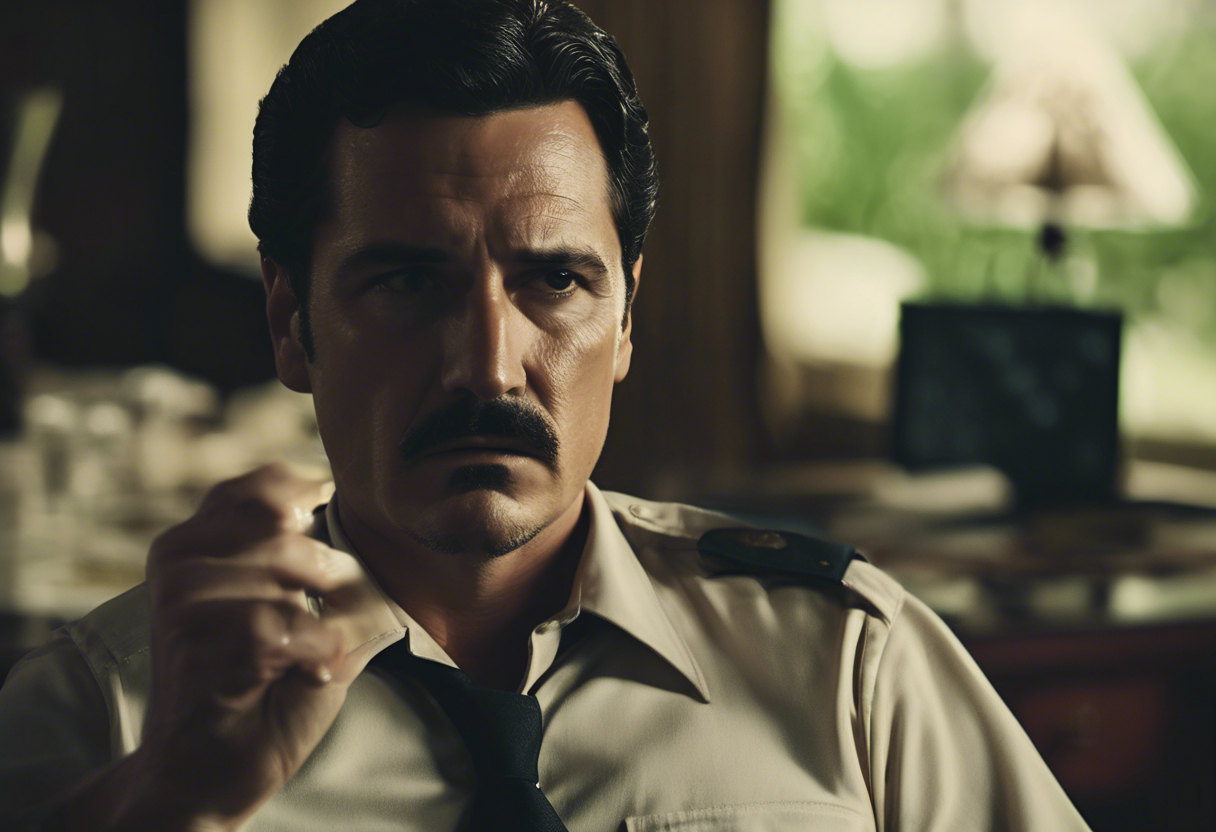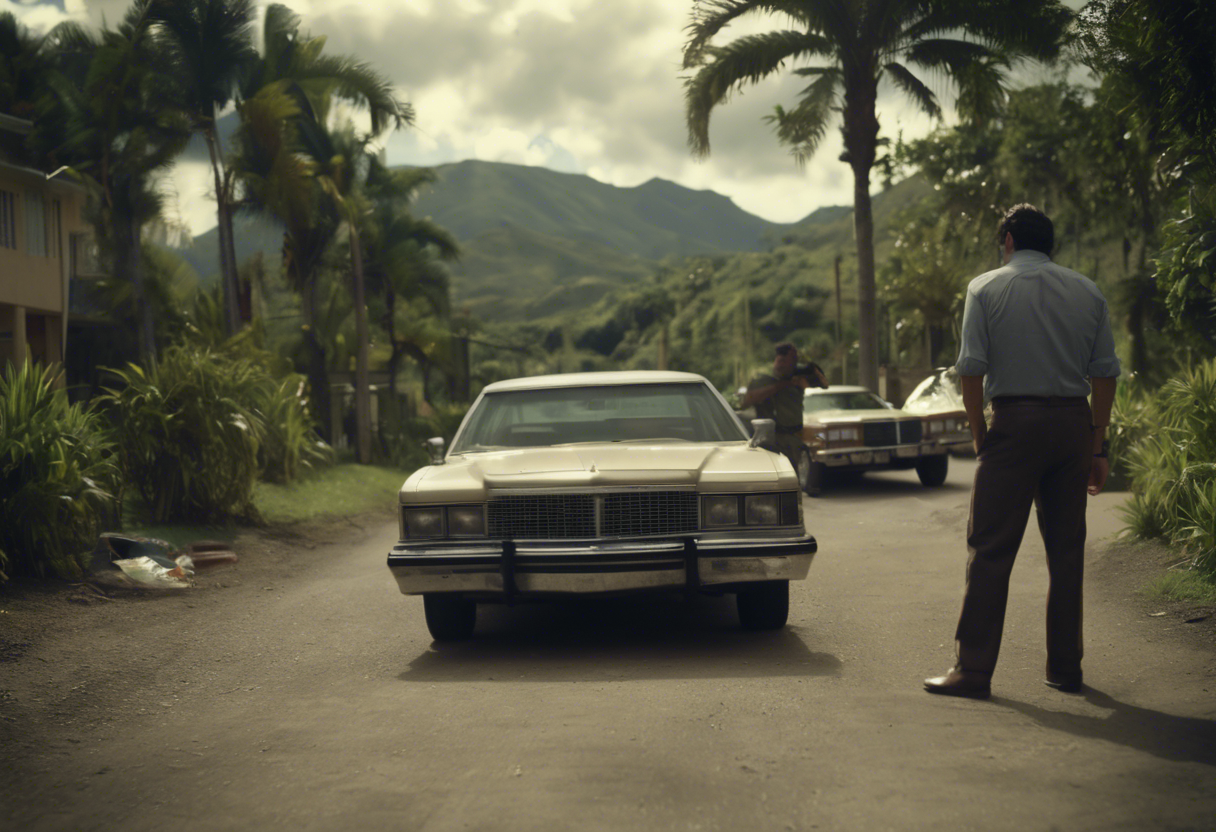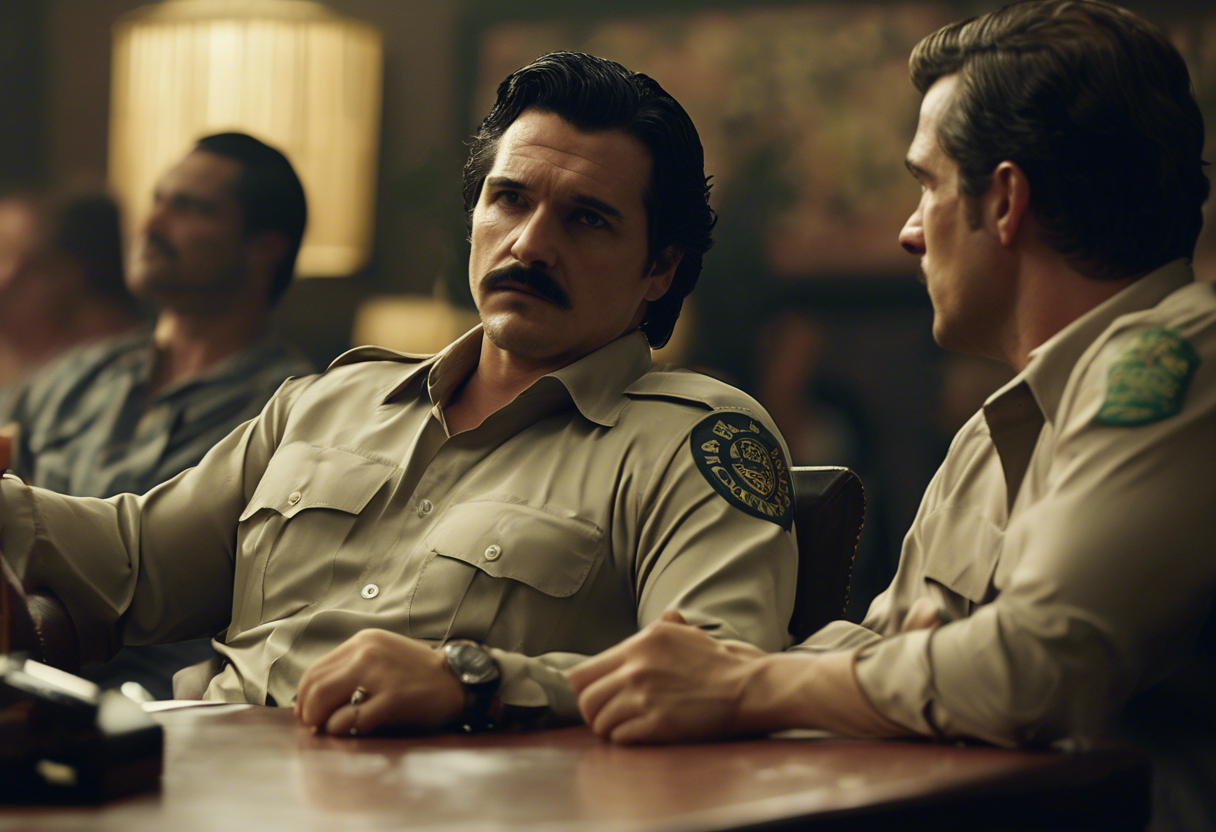Contents
Narcos Season 2: Episode 1 – Free at Last
Introduction
"Narcos" is a Netflix original series that delves into the true story of the rise and fall of the notorious Colombian drug lord Pablo Escobar and the Medellín cartel. Created by Chris Brancato, Carlo Bernard, and Doug Miro, the series is known for its meticulous attention to historical detail and its gripping narrative. The second season, which premiered in 2016, continues the intense and dramatic storyline of the first season, with "Free at Last" being the first episode.
"Free at Last" was directed by Andrés Baiz and written by Doug Miro and Alison Schapker. This episode marks a significant turning point in the series, as it sets the stage for the escalating conflict between Pablo Escobar and the authorities. The production team, including executive producers José Padilha and Eric Newman, ensured that the episode maintained the high standards of storytelling and cinematography that "Narcos" is known for.
Plot Summary
The episode "Free at Last" opens with a dramatic and intense sequence where the authorities launch a massive military effort to take Pablo Escobar into custody. However, in a stunning turn of events, Escobar manages to escape from the prison where he was being held. This escape is not just a physical feat but also a symbolic victory for Escobar, as he literally walks out of the prison and through the army team sent to capture him [5].
With Escobar now on the run, the Colombian government assigns General Hugo Martínez to head a special task force dedicated to bringing him in. Escobar, despite being a fugitive, still maintains a significant level of control and influence over his cartel. He continues to conduct his business, often traveling in the trunk of a taxi to avoid detection.
The episode also delves into the personal struggles of the characters. Steve Murphy, the DEA agent tasked with capturing Escobar, is dealing with the stress of his mission and the strain it puts on his family. His wife, Connie, decides to leave Colombia with their child and move to Miami to stay with her mother, citing safety concerns. This decision angers Murphy, who feels abandoned and frustrated by the situation. His frustration boils over when he attacks two Miami businessmen using cocaine in an airport men’s room, leading to his arrest. Murphy is eventually bailed out by his colleague Javi, and they continue their pursuit of Escobar [5].
Meanwhile, Escobar is reasserting his control over the cartel by punishing those who have betrayed him or are working against his interests. This includes a brutal scene where La Quica, one of Escobar’s henchmen, kills a group of prostitutes who he believes tipped off the police about Escobar’s whereabouts. This act of violence underscores the ruthless nature of Escobar’s operation and the fear that he inspires in those around him.
As the episode progresses, it becomes clear that Escobar’s popularity among the poor in Colombia remains strong, despite his fugitive status. However, this support is not universal, and there are those who are willing to turn him in for the right price. A prostitute, for instance, calls the police to report Escobar’s location, highlighting the growing desperation and divisions within the community.
The military and law enforcement efforts to capture Escobar are relentless, but he continues to evade them through a combination of luck, cunning, and the loyalty of his associates. The episode ends with a sense of tension and anticipation, setting the stage for the ongoing cat-and-mouse game between Escobar and his pursuers.
Themes and Symbolism
"Free at Last" explores several key themes that are central to the "Narcos" series. One of the most prominent themes is the struggle for power and control. Escobar’s escape from prison and his subsequent actions illustrate his determination to maintain his grip on the cartel and his influence over Colombia. This theme is also reflected in the personal struggles of characters like Steve Murphy, who is fighting to balance his professional duties with his family life.
Another significant theme is the impact of violence and fear. The episode is marked by several violent scenes, including the killing of the prostitutes and the general atmosphere of fear that pervades the lives of those involved with or against Escobar. This violence serves as a reminder of the brutal reality of the drug war and the consequences of Escobar’s actions.
The episode also touches on the theme of loyalty and betrayal. Escobar’s henchmen are fiercely loyal to him, even when it means committing atrocities. Conversely, those who betray him face severe punishment, highlighting the strict code of conduct within the cartel.
Symbolically, Escobar’s escape from prison can be seen as a metaphor for his ability to defy authority and the law. His continued evasion of capture despite the efforts of the military and law enforcement underscores his cunning and resourcefulness.
Cultural Impact
"Free at Last" was well-received by audiences and contributed to the overall cultural impact of the "Narcos" series. The episode’s intense and realistic portrayal of the drug war resonated with viewers, making it a topic of discussion and debate. The series, including this episode, has been referenced in various forms of media, from news articles to other TV shows, due to its gripping narrative and historical significance.
Critical Reception
Critics praised "Free at Last" for its strong direction, writing, and performances. The episode was lauded for its ability to maintain the high tension and drama established in the first season. Viewers also responded positively, appreciating the episode’s detailed storytelling and the way it set the stage for the rest of the season.
However, some critics noted that the episode’s pacing could be slow at times, and the personal storylines of the characters, while engaging, sometimes felt secondary to the main plot. Despite these minor criticisms, the episode was generally well-received and is considered one of the standout episodes of the series.
Legacy
"Free at Last" has left a lasting impact on the television landscape. It is often cited as one of the best episodes of "Narcos" and has influenced other crime dramas in terms of its storytelling and cinematography. The episode’s portrayal of the drug war and its consequences continues to be relevant today, serving as a reminder of the complexities and dangers involved in such conflicts.
The success of "Narcos" and episodes like "Free at Last" has also paved the way for other true-crime and historical dramas, demonstrating the public’s appetite for well-researched and compelling storytelling.
References
- https://ew.com/recap/narcos-season-2-recaps-and-study-guide/
- https://www.imdb.com/title/tt5011946/plotsummary/
- https://www.refinery29.com/en-us/2016/09/120960/narcos-season-2-recap-episodes-synopsis
- https://narcos.fandom.com/wiki/Free_at_Last
- https://mikesfilmtalk.com/2016/09/03/narcos-season-two-ep-1-free-last-review/

